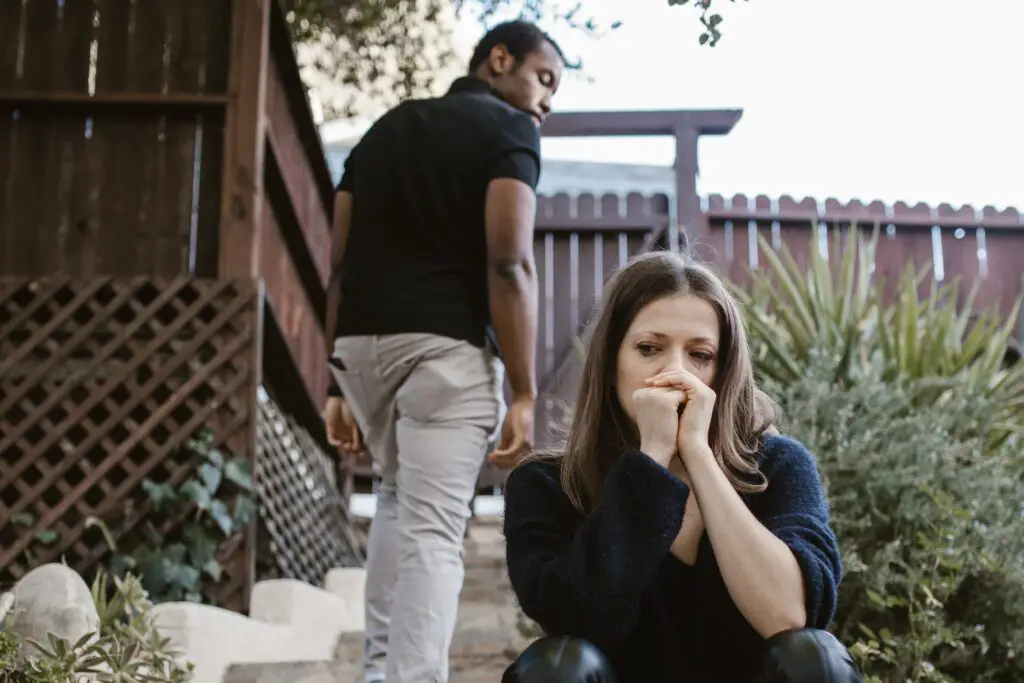The Evolution of Relationships:
Unraveling the Mystery of Breakups After Two Years
In the intricate dance of love, relationships often embody the poetry of the eternal. They encapsulate moments of pure bliss, companionship, and growth. Yet, within the tapestry of togetherness, there lies a sobering truth: sometimes, love falters and relationships falter along with it. Among the enigmatic phenomena of romantic entanglements, one question stands out prominently: Why do couples often part ways after two years? This query delves into the depths of human connection, exploring the intricacies of love, commitment, and personal evolution.

12 Reasons Why Couples Usually Breakup After 2 Years?
1. The Infatuation Fades
In the honeymoon phase, love often feels like an intoxicating elixir, flooding every moment with euphoria. However, as time passes, the initial infatuation diminishes, giving way to a more nuanced understanding of one another. For some, this shift can be disillusioning, leading to a reevaluation of the relationship.
2. Unrealistic Expectations
Society inundates us with romanticized notions of love, perpetuating the myth of “happily ever after.” Couples may find themselves grappling with the dissonance between these idealized fantasies and the reality of their relationship. When expectations fail to align with reality, discord may ensue.
3. Communication Breakdown
Effective communication serves as the lifeblood of any relationship, fostering understanding, empathy, and connection. However, as familiarity sets in, couples may grow complacent in their communication efforts, leading to misunderstandings and resentment.
4. Growing Apart
Individual growth is an inherent facet of the human experience. Over time, partners may embark on divergent paths, evolving in divergent directions. This natural evolution can strain the bonds of even the most steadfast relationships, ultimately leading to estrangement.
5. Lack of Emotional Intimacy
Intimacy extends beyond physical affection, encompassing emotional vulnerability and connection. Couples who fail to cultivate emotional intimacy may find themselves feeling disconnected and unfulfilled, prompting them to seek solace elsewhere.
6. External Stressors
Life’s trials and tribulations often exert immense pressure on relationships. From financial woes to familial conflicts, external stressors can strain the foundation of even the strongest partnerships, leaving couples feeling overwhelmed and depleted.
7. Unresolved Conflict
Conflict is an inevitable component of any relationship, serving as a crucible for growth and understanding. However, unresolved conflicts can fester beneath the surface, poisoning the wellspring of love and eroding trust over time.
8. Neglecting Self-Care
In the pursuit of love, individuals may neglect their own well-being, prioritizing their partner’s needs above their own. This self-sacrifice, while well-intentioned, can lead to feelings of resentment and burnout, ultimately destabilizing the relationship.
9. Loss of Independence
Healthy relationships thrive on a delicate balance of interdependence and independence. Yet, some couples may become enmeshed in a codependent dynamic, sacrificing their autonomy in favor of collective identity. This loss of individuality can suffocate the relationship, stifling growth and vitality.
10. Sexual Incompatibility
Sexual intimacy is a cornerstone of romantic relationships, serving as a conduit for connection and passion. However, couples may find themselves grappling with sexual mismatches, leading to frustration and dissatisfaction in the bedroom.
11. Entering the Comfort Zone
Comfort can be a double-edged sword in relationships. While familiarity breeds a sense of security, it can also breed complacency. Couples who grow too comfortable may cease investing in the relationship, taking their partner for granted and neglecting to nurture the bond.
12. Reevaluation of Priorities
As individuals mature and evolve, their priorities often undergo a profound transformation. What once held paramount importance may recede into the background as new passions and pursuits take center stage. Couples may find themselves reassessing their compatibility in light of these shifting priorities, ultimately choosing divergent paths.
In Conclusion
The ebb and flow of romantic relationships are as enigmatic as they are profound. While some couples weather the storms of love with unwavering fortitude, others find themselves adrift in the tumultuous sea of uncertainty. The reasons behind breakups after two years are as varied as the individuals involved, reflecting the intricate interplay of emotion, circumstance, and personal evolution. As we navigate the labyrinth of love, let us approach each relationship with compassion, understanding, and a willingness to embrace the inherent imperfections of human connection.
